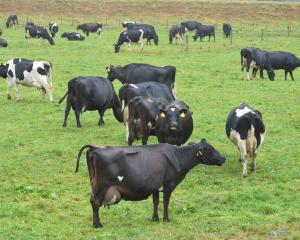Terms of trade increased 4.9% in the three months ended June, while export prices increased 3.4% and import prices fell 1.5%.
With more of the recent dairy price surge to come through, Westpac economist Nathan Penny expected the terms of trade to reach a 40-year high in the September quarter and to remain high into 2014.
Higher dairy prices drove the increase in export prices over the June quarter, with the increase largely reflecting the effects of the summer drought, as supply concerns drove a surge in prices over March and April, ASB economist Christina Leung said.
Although improved weather conditions had seen an easing in supply concerns and, in turn, global dairy prices more recently, prices remained very high.
The effects of the recent Fonterra contamination scare on global dairy demand and prices appeared limited, Ms Leung said.
The terms of trade represented New Zealand's purchasing power with the rest of the world, so the stronger-than-expected result boded well for national income growth, she said.
The recent upward revision by Fonterra to its milk price payout, to $7.80 a kg of milk solids, illustrated the income boost from strong global dairy prices, with the revision estimated to boost on-farm revenue by $450 million.
The effects of the summer drought were also reflected in lower dairy and meat export volumes, as farmers reduced milk production and brought forward livestock slaughter.
Beyond the short-term disruptions of the drought, the medium-term outlook for export growth was ''mildly positive'' as global demand continued to grow.
The fall in import prices was largely driven by lower prices for petroleum and petroleum product prices, she said.
The world's largest milk powder drier at Fonterra's Darfield site, in Canterbury, has produced its first batches of whole milk powder.
The drier has the capacity to produce up to 30 metric tonnes of whole milk powder an hour, and 700 metric tonnes per day, or the equivalent of 45 shipping containers.
The first production run marked the completion of Fonterra's $500 million development of its Darfield site over the past three years.


